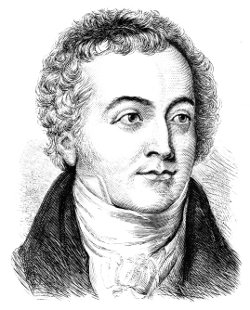
As Thomas Young was struggling to decipher the Rosetta Stone, a traveler gave him a parcel of Egyptian manuscripts. Among the baffling hieroglyphics he noted three names written in Greek: Apollonius, Antigonus, and Antimachus. As he was puzzling over the rest, a friend gave him some papyri he had purchased at Thebes in 1820. Two of these contained some Greek characters, and Young began to examine them impatiently.
He “could scarcely believe that I was awake, and in my sober senses” when he saw the words Antimachus Antigenis and, a few lines further back, Portis Apollonii. It was a Greek translation of the very Egyptian manuscript he had been wrestling with!
“I could not, therefore, but conclude, that a most extraordinary chance had brought into my possession a document which was not very likely, in the first place, ever to have existed, still less to have been preserved uninjured, for my information, through a period of near two thousand years: but that this very extraordinary translation should have been brought safely to Europe, to England, and to me, at the very moment when it was most of all desirable to me to possess it, as the illustration of an original which I was then studying, but without any other reasonable hope of being able fully to comprehend it.”
“This combination would, in other times, have been considered as affording ample evidence of my having become an Egyptian sorcerer.”
